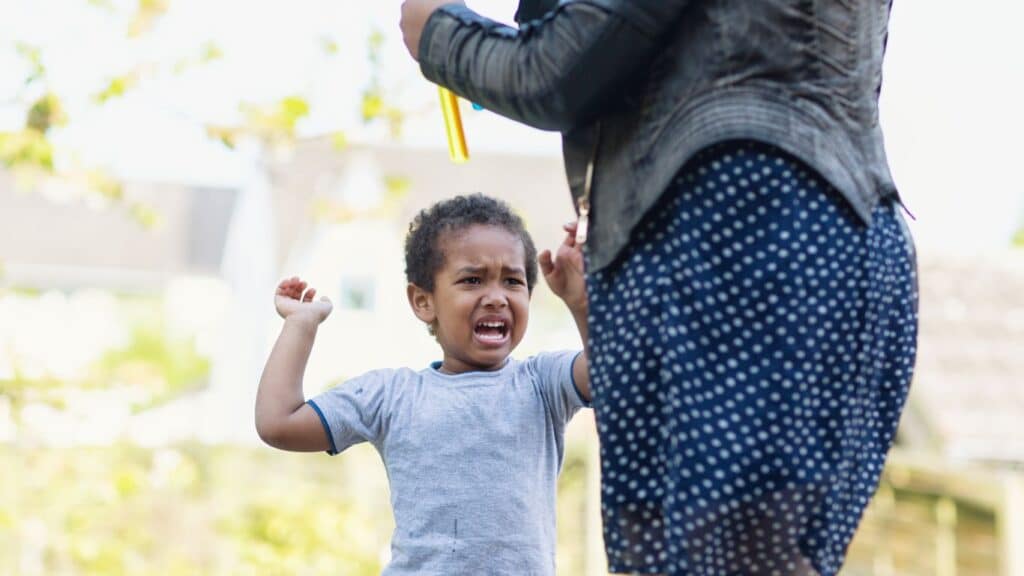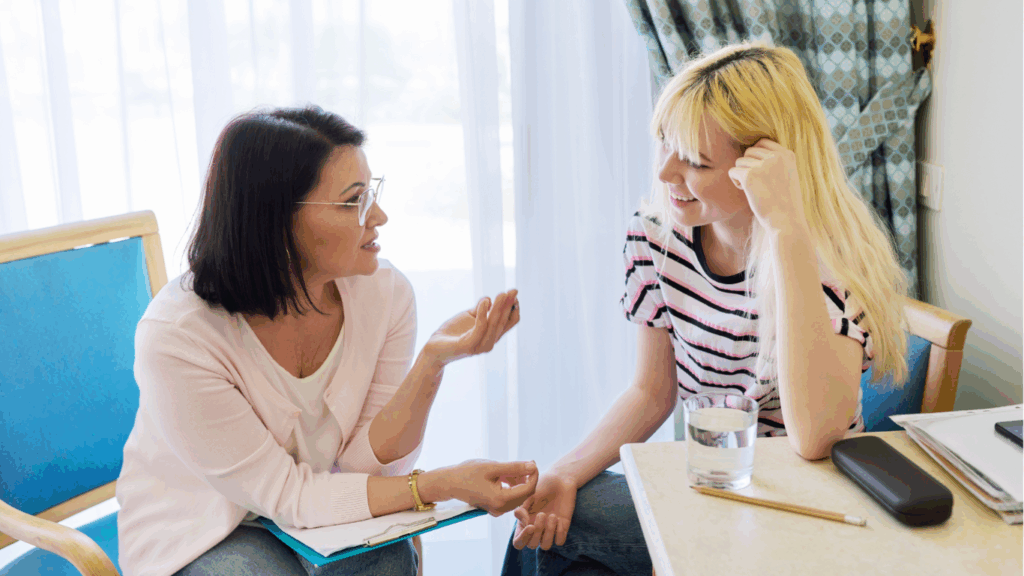Britta West is a Registered Clinical Counsellor and Clinical Traumatologist located in Burnaby, BC. She completed her Master of Arts in Counselling Psychology from Yorkville University in 2009. In 2012, Britta completed the Clinical Traumatologist specialization from the Traumatology Institute. Her areas of expertise include attachment, trauma, mental health and behavioural health diagnoses and parenting. Britta provides therapeutic interventions to address these issues in the context of the family system.
What are the most common challenges and diagnoses you encounter in adopted children and adoptive families, and how do they impact those children and families?
Adoptive families commonly face challenges in personality and identity-formation. They must struggle with the “who am I…who are you?” question in a different way from other families. The ability of the parents to feel secure in their relationship with their child is the primary focus of support that I give to families who are facing this challenge.
All children, regardless of their beginnings, need secure and safe grounding with a healthy caregiver. And when they get that, they test it, and test it again, in many different ways, and over a long span of time. For adoptive families, this can often include issues surrounding birth families and origins.
I also work with a broad spectrum of diagnoses, including depression and anxiety, schizophrenia, substance dependence, suicidality, FASD, ADHD, and PTSD. Adoptive parents’ strength, openness, and pro-activity in addressing mental health issues for their children is amazing.
The adoption process requires parents to overcome many hurdles and can, therefore, require them to be more open and receptive to their children. This resilience and openness are crucial to accommodating any mental health issue.
If parents are concerned about their child but don’t have a diagnosis yet, what steps should they take? How can they know when a problem is just normal childhood behaviour and when it’s cause for real concern?
My rule of thumb is no concern is too small. I have worked with many families who, at the time of diagnosis, looked back and could see moments where they had concerns but didn’t address them.
There’s no harm in checking in with professionals in a curious, loving, and nurturing way about all aspects of your child’s health.
Try the following: take your child to your family doctor with a written list of concerns, along with anything you have documented about his or her behaviour. If your family doctor is unsure, ask for a referral to a pediatrician, who can assess your child and, if needed, make referrals to specialists such as a child psychiatrist.
There is no way to tell whether a child’s behaviour is “normal childhood behaviour” unless it is assessed by a professional. However, if a child is harming himself or someone else, that is a significant cause for concern. If children are going into distress without obvious causes and cannot verbalize the source of their distress, that’s a concern. If they’ve lost interest in activities they previously enjoyed, or if they make sudden changes in their emotional style or approach, that’s also something to address.
As parents, we can become isolated with our own routine, our own children and our own experience of family. Getting an outside opinion from a professional is generally good for a child’s overall health. It takes a village.
If and when a child receives a mental health diagnosis, what are the next steps the family should take?
Parents should always ask for a written report of any diagnosis. Keep track of any questions so you can get clarification of the diagnosis and its implications.
Once you receive a diagnosis, I encourage all parents to read as much as they can from reputable sources on the nature of the mental illness, the potential treatment plans and the best support for their child. Mental health diagnoses are at an all-time high but so is the available information and research. I caution parents to find information from trusted and researched sources. There is a great deal of misinformation out there.
The next step is to find a reputable counsellor or psychologist who has experience in mental health diagnoses in children, and in parenting for these diagnoses. Your parenting approaches will need to shift to accommodate the diagnosis, and this can be a difficult path to navigate.
How can parents best support their child through mental health challenges and past trauma? Do they need to parent in a particular way?
Yes, parents need to parent differently when there is a diagnosis present. Sometimes parents are stunned at the techniques that I ask them to simply “throw away.” I educate all of my parent clients that parenting is not a technique or system. Parenting is the development of an attachment bond over time. Once we shift our focus, with added understanding of attachment and relationship development and the impacts of positive healthy attachment, we happily throw away old parenting techniques that never worked in the first place. And our children often appreciate it.
I advise parents to seek a counsellor or psychologist who has a background in family systems and parenting in the context of mental health diagnoses. The family system and parenting relationships are the primary source of impact and change for any child. There can be more success in a thoughtful, informed, supported parenting approach than in weeks or months of taking your child to a counsellor.
I begin counselling with the parents. With mental health diagnoses, parents are often overwhelmed and concerned. They take their child straight to a counsellor, but many children who have been taken to counselling in this way will say to me, “obviously my parents think I am the problem.” The child sinks further into low self-esteem and despair.
I do extensive work in education about the aspects of the diagnosis and then move to address past parenting approaches and what has been working and not working. We then re-define the parenting approach to include a healthy vision of a functioning family system that accommodates and accepts the diagnosis. This is a much more exhaustive process than many parents expect. It isn’t until then that the child is included in therapy.
If a child has been traumatized by an adult’s behaviour in the past, how can I help them to understand the dynamics that allowed the trauma to happen in order to help them to feel safe in the world?
It may sound counter-intuitive to advise not talking about trauma, but in fact, there are multiple reasons and situations where I do advise this to parents of traumatized children. It is developmentally appropriate for a child to be black and white about the issue and speak in terms of good and bad with a low level of understanding of complex dynamics. If we push them to try and understand the complexities of human behaviour in an adult way or ask them to understand the dynamics of a perpetrator, we can sometimes back-slide their progress and create anxiety, depression, and feelings of guilt and shame. Their neurological system works in this way to keep them feeling safe.
Processing childhood trauma with a child or adolescent looks very different than it does with an adult. If an adult was doing trauma processing with me, I might help them to understand the dynamics of the event. However, with a child, I would not as that level of understanding is beyond their developmental capacity.
I encourage any parents who are attempting to discuss their child’s past traumas to do so with the support of a trained professional in trauma work, as there needs to be established physical and emotional safety. There can be re-traumatization if we do not manage their stories in an appropriate way. Parents of traumatized children should also focus on creating as much childhood for them as possible.
How should parents address questions or comments from friends, extended family, neighbours, teachers, acquaintances, and others? What determines who needs to know information about a child’s past, their diagnoses, and so on?
I encourage parents to remain cautious and conservative about informing people of their child’s diagnosis. Children crave the same respect for privacy and autonomy as adults, so when they aren’t part of the decision as to who is informed and how they can feel stigmatized. It’s important to remember that a child needs to feel that they can own and manage their own health and wellness as they mature.
It’s also important to know that as open and informed as we‘ve become about mental health, the reality for children in their peer groups and at schools is still very difficult. As parents, we need to never underestimate the importance of our child’s social needs to be accepted and normalized in their peer group. Information about a diagnosis can have a hugely negative impact on their ability to socialize. I always ask parents to talk to their children about who will be informed and what they will be told and to make a commitment that the information stops there.
Always ask yourself, “Can I trust the person I am sharing this information with to use it in a way that helps my child? Can he understand the diagnosis and its implications without passing a judgement that may harm my child? Will telling her help my child to have a better experience with that person and in that context?”





